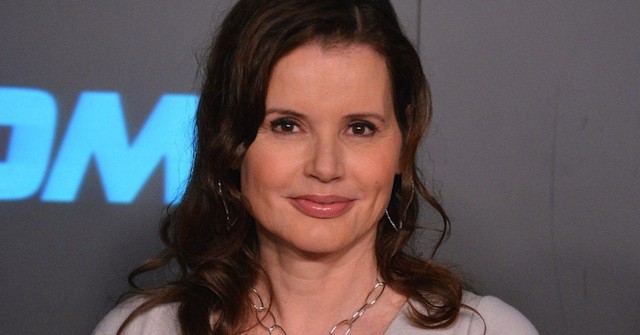Geena Davis wrote a must-read essay for The Hollywood Reporter’s “Women in Entertainment Power 100” issue, in which she notes that women and girls only make up 17% of all film characters over the last twenty years — a figure that hasn’t budged since 1946. The actress and activist argues that the problem isn’t just that female characters are being sidelined by male protagonists, but that “the fictitious villages and jungles and kingdoms and interplanetary civilizations [in the movies] were nearly bereft of female population,” even in family films. With that, she observes, “we are in effect enculturating kids from the very beginning to see women and girls as not taking up half of the space.”
Then Davis offers two astoundingly simple and obvious solutions to the problem of erasing women from view:
Step 1: Go through the projects you’re already working on and change a bunch of the characters’ first names to women’s names. With one stroke you’ve created some colorful, unstereotypical female characters that might turn out to be even more interesting now that they’ve had a gender switch. What if the plumber or pilot or construction foreman is a woman? What if the taxi driver or the scheming politician is a woman? What if both police officers that arrive on the scene are women — and it’s not a big deal?
Step 2: When describing a crowd scene, write in the script, “A crowdgathers, which is half female.” That may seem weird, but I promise you, somehow or other on the set that day the crowd will turn out to be 17 percent female otherwise. Maybe first ADs think women don’t gather, I don’t know. And there you have it. You have just quickly and easily boosted the female presence in your project without changing a line of dialogue.
These suggestions won’t help women directors get more work or immediately create more female-centric narratives — two things we’re in dire need of in Hollywood — but they will garner more work for journeywoman actresses and create more visibility for women overall. The latter is important for we as movie-goers and as a society to stop thinking of men as the “default” gender, and women as the exception, the “other.”
Once that mental hurdle of men being “normal” and women the “deviation” is overcome, it’ll be easier to think of women as “people,” rather than “those people.” Take, for example, the reversion of Hollywood’s high-concept movies to a “genderless” (white) male standard. Why shouldn’t a woman fall in love with a computer (Him) or have fantastical daydreams (The Secret Life of Wilma Mitty) or fail at being a folk singer (Inside Lily Davis), to take just a few examples from this month’s movies? Were any of these events real, they could happen to anyone. But they always happen to white male characters in in the movies, which means that we’re still treating white men, that tiny global minority, as representative of everyone.
Walk-in roles and crowd scenes including in animated films that are equally distributed by gender won’t solve the whole problem, but they’ll serve as a visual reminder that women aren’t some fringe group in need of token inclusion. We’re (a little over) half the human race. We deserve to be seen that way.






